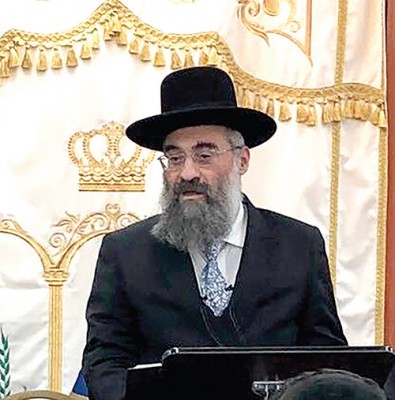
The Season of holidays which marks the exciting and awesome Jewish New Year has come to a close. Our Sages teach us that during this time, the Jewish nation immerses in much prayer and mitzvot (Commandments) for the important opportunity to set the tone for the upcoming year. One of the many great lessons we can learn from this time is the immense power concentrated in the mouth. This is divided between the spiritual elements of speech, and the less obvious power of silence. We have written much over the year about the various elements of spiritual speech, and will now focus on what our Torah says about the power of silence.
The Talmud in Tractate Pesahim (Daf 45) and Tractate Menahot (Daf 36) states that a man who interrupts the placement of his head and hand tefilin by speaking forfeits the special protection granted to Jewish soldiers. This can be understood in the following context: There is a special Mitsvah on a Kohen (Priest) to give a preparatory speech to Jewish soldiers before they make war. During this speech, the Kohen states “All who fear [because of the sins in their hands] should return home (Devarim 20:8)”. The Talmud derives from this verse that the person who interrupts his Mitsvah of tefilin, which is placed on the hand, is an intended target of the Kohen’s exhortation.
In a similar vein, our Sages have written that it is prohibited to speak between the morning blessing of Yishtabah and Yotzair Ohr; speaking at this time also disqualifies Jewish soldiers from war. This is surprising, since Yishtabah is the conclusion of a set of prayers while Yotzair Ohr begins a new set. Nevertheless, our sages teach us the consequence of speaking even here. All the more so, our sages tell us that it is prohibited to speak at any point in the Pesukei D’zimra portion, which consists of a connected series of Psalms and blessings. Similarly, it is even more serious to interrupt one’s prayers during the Blessings of the Shema itself. We thus see from these cases that keeping silent during prayer has the ability to safeguard soldiers in a time of war!
In the last Parsha (portion) of the Torah, Moshe Rabbeinu blesses the tribe of Gad with exceptional prowess in warfare. As the verse states “Poised is [Gad] like a lion, to tear off arm and head (Devarim 33:20).” An explanation given for this verse is that one’s reaction to an attack is usually lifting up the hand to protect his face. Therefore, Gad is blessed with the ability to cut through the enemy’s defense and strike at their target, all in one swoop.
The Medrash tells us that Gad’s tribesman were worthy of this blessing because they were careful in the mitsvah of tefilin, which is placed specifically on the head and arm. This Medrash further demonstrates the connection between tefilin and victory in war. The implication therefore is that if one is not careful with this mitsvah, he may face vulnerability in times of danger. A person should therefore exercise caution and not speak at all while wearing tefilin. This means silence regarding business matters or other personal matters.
The Talmud teaches that the prohibition of speaking while wearing tefilin is more important than the prohibition of speaking while donning the Tzitz. The Tzitz is a unique headpiece worn by the Kohen Gadol, upon which was embossed the name of Hashem. The extreme holiness of this object demanded that the wearer be constantly mindful of its presence on his head. Our Sages explain that since the Tzitz only had Hashem’s name on it in one place, it is not equal to the tefilin in this regard, which has Hashem’s name in 42 places! These 42 places are counted by combining the 21instances on the head tefilin and the 21 instances on the arm tefilin. This is hinted to in the Hebrew word Bam (which has a numerical value of 42), as in בָּ֑ם וְדִבַּרְתָּ֖ לְבָנֶ֔יךָ וְשִׁנַּנְתָּ֣ם – You should teach [these words] to your children and you shall speak them (the words) (Devarim 6:7).”
In connection to the above, our Sages also quote for us the verse “And all the peoples of the earth shall see that the Hashem’s name is proclaimed over you, and they shall stand in awe of you (Devarim 28:10)”. This is referring directly to the tefilin, which if respected causes the nations of the world to recognize the immense holiness which Hashem Grants to the Jewish nation. We should therefore all strengthen ourselves in the mitsvah of tefilin and, when wearing them, not utter any words other than Tefilah (prayer) and Torah. May Hashem bless us so that we are strengthened in this Mitsvah, and recognize the great protection of keeping silent during the right times, Amen v’ Amen.
By Adam Suionov
The Power Of Silence During Prayer
Typography
- Smaller Small Medium Big Bigger
- Default Helvetica Segoe Georgia Times
- Reading Mode











